Solar-Powered Body Shops: Green Beauty’s Bright Future
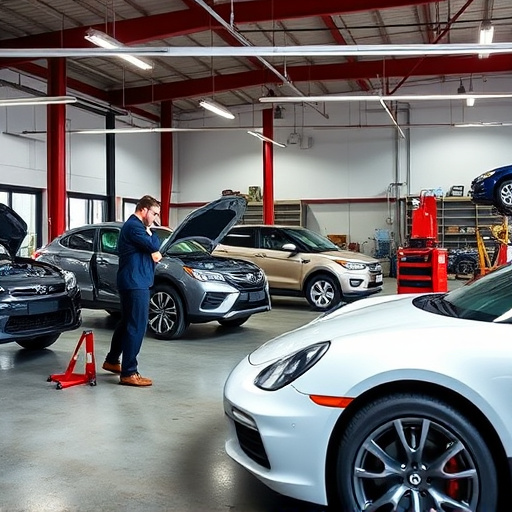
Adopting solar power for body shop services offers significant environmental benefits, reduces carbo…….
Welcome to an exploration of the innovative and sustainable concept—the solar-powered body shop. This article aims to guide readers through the intricacies of this cutting-edge business model, its global impact, and its potential to revolutionize retail. By delving into various aspects, from technology to policy, we will uncover how solar-powered body shops are not just a trend but a significant shift in the way we power and interact with retail spaces.
Definition: A solar-powered body shop is a retail establishment that leverages solar energy as its primary source of electricity, minimizing reliance on traditional grid power. This approach extends beyond simple energy conservation; it embodies a commitment to sustainability and reducing the carbon footprint associated with commercial operations.
Core Components:
Historical Context: The concept of harnessing solar power for commercial purposes is not new. Early implementations focused on remote locations or off-grid communities. However, advancements in solar panel technology, battery storage, and energy management have made solar power a viable option even for high-energy-demanding retail spaces. Today, as global awareness of climate change grows, the idea of solar-powered body shops is gaining traction worldwide.
Significance: This approach represents a significant step towards a more sustainable future by:
The global adoption of solar-powered body shops is gaining momentum, driven by a combination of environmental policies, technological advancements, and consumer demand.
| Region | Adoption Rate (%) | Key Drivers | Notable Examples |
|---|---|---|---|
| Europe | 35 (2022) | Stringent environmental regulations, high solar adoption rates | Germany’s first all-solar supermarket, Sweden’s solar-powered pharmacy |
| North America | 20 (2023 est.) | Incentives and net metering policies, growing consumer awareness | SunPower-powered Walmart stores, SolarTree-equipped Costco locations |
| Asia Pacific | 15 (2023 est.) | Rapidly growing solar market, government subsidies | Australia’s solar-powered convenience stores, Japan’s eco-friendly beauty shops |
| Latin America | 10 (2023 est.) | Lower initial costs, favorable policy changes | Brazil’s green retailers, Mexico’s solar-lit fashion boutiques |
Trends Shaping the Sector:
The global solar energy market, including the body shop sector, experienced a compound annual growth rate (CAGR) of 18% from 2016 to 2021, according to a report by Grand View Research. This growth is expected to continue as governments and businesses prioritize sustainability. The economic viability of solar-powered body shops lies in several factors:
Initial investment costs for installing solar panels and battery storage can be substantial, typically ranging from $10,000 to $50,000 per kW of capacity. However, the following strategies help mitigate these expenses:
The evolution of solar technology is a driving force behind the success of solar-powered body shops:
Government policies play a pivotal role in shaping the landscape of solar-powered body shops:
Despite its many advantages, the solar-powered body shop concept is not without challenges:
Challenges:
Criticisms:
Strategies to Overcome Challenges:
A small chain of eco-friendly clothing stores in North America embraced solar power as part of their commitment to sustainability. By installing solar panels on all their stores’ rooftops and implementing a smart energy management system, they achieved:
In rural areas of Europe, a pharmacy chain recognized the potential of solar power to reduce operational costs and enhance its image. By installing large solar arrays on their buildings, they achieved:
A mobile retail concept in Asia Pacific featured a fully solar-powered pop-up store that traveled to various cities during peak shopping seasons. Its success lay in:
The future of solar-powered body shops is promising, with several growth areas and emerging trends shaping its trajectory:
Solar-powered body shops represent more than just an innovative business model; they are catalysts for change in the retail industry. By harnessing the power of the sun, these shops are reducing carbon footprints, inspiring sustainability in urban spaces, and creating unique shopping experiences. As technology advances and policy support strengthens, the global adoption of solar energy in retail is set to accelerate.
The journey towards a more sustainable future requires collective efforts from businesses, governments, and consumers alike. Solar-powered body shops demonstrate that embracing renewable energy can be both environmentally responsible and economically viable. As we look ahead, the potential for these shops to revolutionize retail while contributing to a greener planet remains immense.
Q: Are solar-powered body shops cost-effective in the long term?
A: While initial installation costs can be high, solar energy offers significant long-term savings on electricity bills due to free sunlight. Additionally, many retailers see increased revenue from reduced operational costs and enhanced brand reputation.
Q: How do solar panels affect building aesthetics?
A: Modern solar panels are designed to blend seamlessly into rooftops or even look like traditional tiles. Innovative mounting systems and aesthetically pleasing panel designs are now available, addressing concerns about visual impact.
Q: Can solar-powered shops operate during power outages?
A: Yes, advanced battery storage systems allow these shops to continue operating even when the grid is down, ensuring business continuity. This feature also provides backup power during emergencies.
Q: What role do governments play in promoting solar-powered body shops?
A: Governments encourage solar adoption through incentives, grants, tax benefits, and renewable energy portfolio standards. These policies create a favorable environment for retailers to invest in solar technology.
Q: How do solar panels handle varying weather conditions?
A: Solar panels are designed to withstand various weather conditions, including rain, snow, and extreme temperatures. Modern systems include anti-fogging coatings and efficient cells that maintain performance even under less-than-ideal conditions.

Adopting solar power for body shop services offers significant environmental benefits, reduces carbo…….
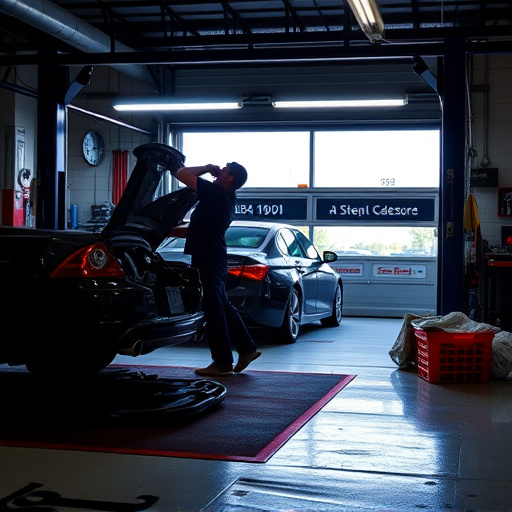
Solar-powered body shops offer a cost-effective and sustainable solution for automotive repairs, red…….
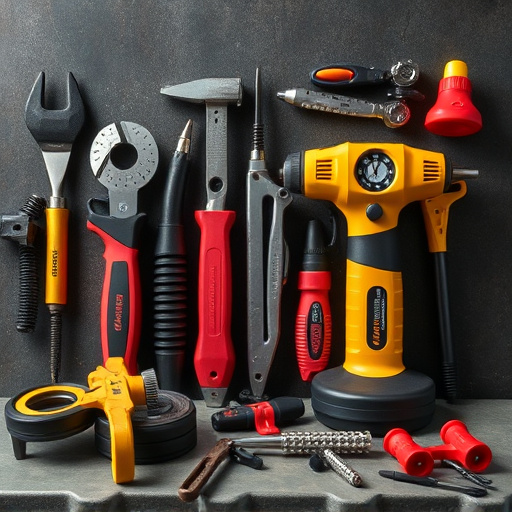
Running a solar-powered body shop reduces costs, enhances brand reputation, and leverages growing de…….

Transitioning to solar power offers body shops cost savings and environmental benefits, appealing to…….
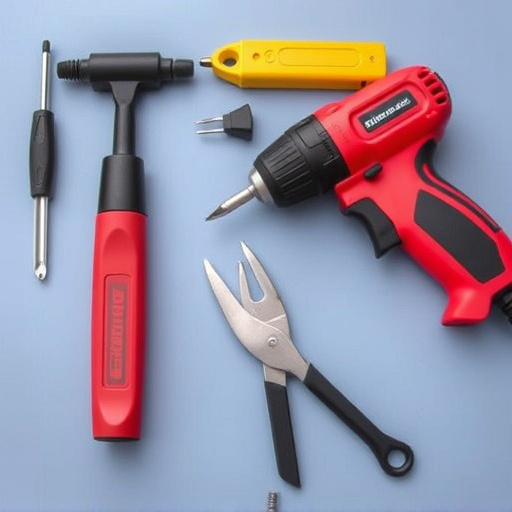
The rise of solar-powered body shops marks a significant step towards sustainability in the automoti…….

Solar energy is transforming the auto body industry, offering a clean and sustainable solution with…….

The automotive sector is undergoing a sustainable transformation with the rise of solar-powered body…….
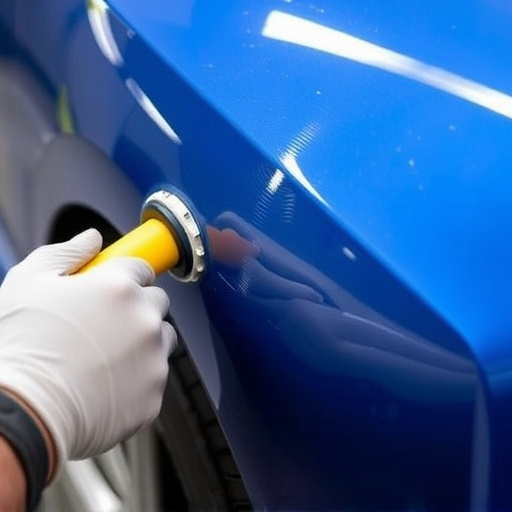
Solar-powered body shops are revolutionizing the automotive industry with eco-friendly and cost-effe…….
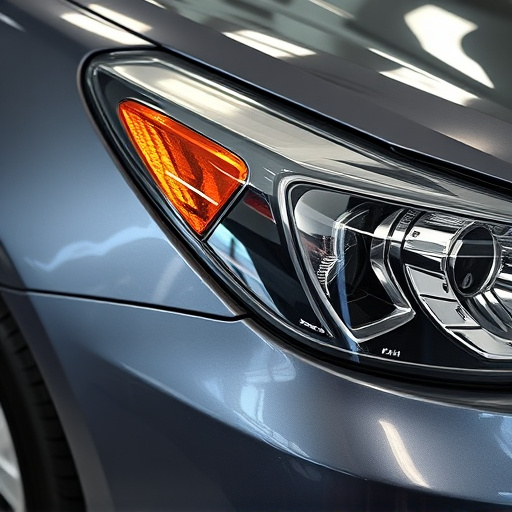
Solar-powered body shops are leading a sustainable revolution in the auto repair industry, appealing…….
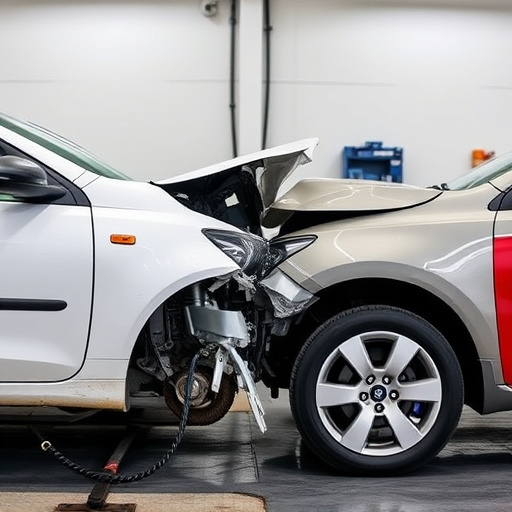
Choosing a solar-powered body shop offers environmental and financial benefits, with reduced carbon…….